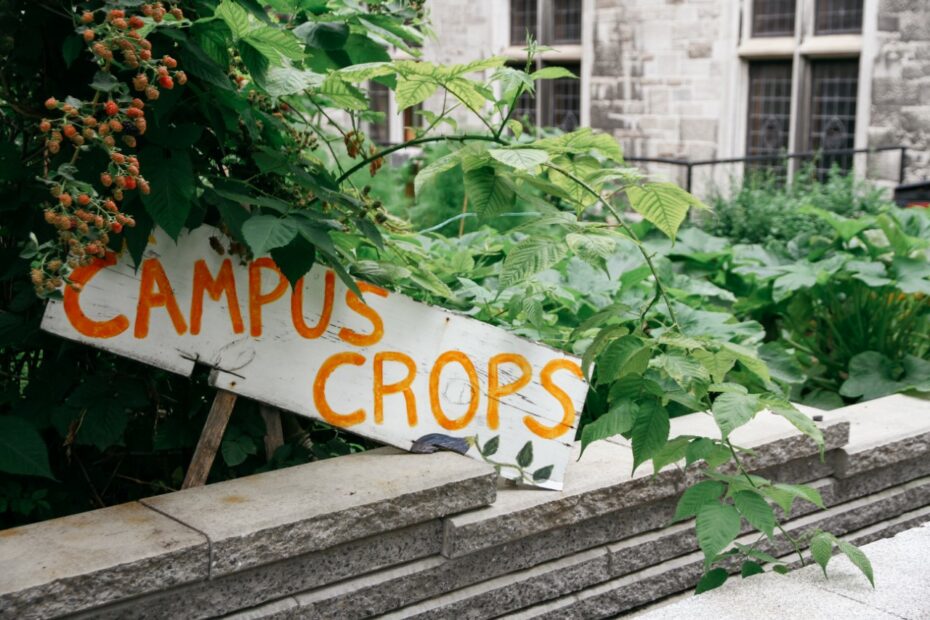
Campus Crops is no stranger to making waves in the McGill community. Operating since 2007, this student-led organization is one of the oldest beacons of sustainable change at McGill. Fourteen years strong, they have maintained their mission of creating a gardening community on campus.
With three gardens at McGill, Campus Crops is growing lots of variety, including leafy greens, root vegetables, squashes, tomatoes, peppers, and watermelon. But it’s not just about the food; their goal is to provide an alternative to unsustainable corporate food systems and work alongside groups like Midnight Kitchen to provide fresh produce for people in need.
“Sustainable food production to me really represents an intersection of all three pillars of sustainability [social, environmental, and economic],” commented student coordinator Zoë Deskin. “There are many social issues you could talk about when it comes to food, and collective gardening allows for access to affordable food as well as discussions on why we need healthy soils and biodiversity.”

“For myself, the extra special part of Campus Crops is that it gives this lived experience to all of these issues of sustainability we spend a lot of time studying and learning about [at McGill], which I think really enriches the learning experience,” added co-student coordinator Marysia Zaleski-Cox. “In a practical sense too, I think we’re just lucky to be on a campus downtown with a lot of green space, and gardening is a great way to use green space in a productive and engaging way.”
One of the challenges facing many student organizations is relying on volunteers for time- and labor-intensive responsibilities. With the help of the Sustainability Projects Fund (SPF), Campus Crops was able to receive financial support that allowed organizers the time to secure long-term funding with the Students’ Society of McGill University (SSMU). The McGill’s SPF is the largest fund of its kind in Canada, valued at $1 million annually with the mandate to build a culture of sustainability on McGill’s campuses through the seed funding of interdisciplinary projects. Prioritizing remuneration for student efforts is a crucial aspect of student work, especially when it comes to sustainability.
“Sure, gardening is a hobby, but it’s a hobby that requires a lot of skills and a lot of time. By paying student organizers, we can facilitate others in gaining experience,” added Zaleski-Cox. “Because of the amount of time that takes, if we want to have continuity and ensure this is a sustainable project, we need to have people who can [through compensation] afford to give it as much time as is needed.”
Creating a community that is more self-sufficient and environmentally responsible is a major priority for Campus Crops.
“One of the most significant threats of climate change has always been how it will impact food supply chains. I think that empowering people to grow their own food in an urban setting is a necessary part of the solution. Everyone deserves access to healthy and fresh food and community, and I think that communal gardening is such a great way to work on both problems,” mentioned Deskin.
Due to the COVID-19 pandemic, much of their volunteer base was unable to join in on the gardens this year. Campus Crops is actively seeking volunteers with any level of gardening experience.
“My message for the McGill community is that we’re here and we’d love to see you, talk with you, and garden with you,” invited Zaleski-Cox. “This whole project is by students, for students. We want people to be engaged, we want to share the joy of growing things with you.”
To follow along and support collective gardening on campus, join their Facebook group or contact them via email.
